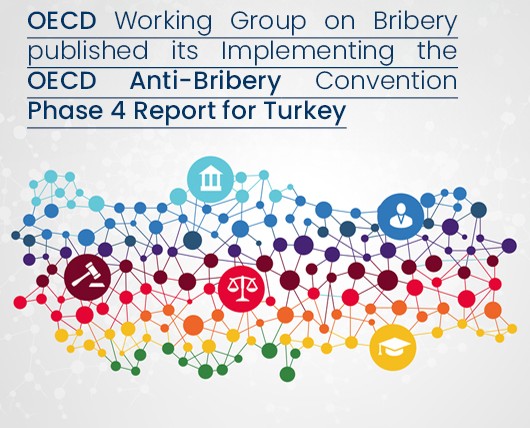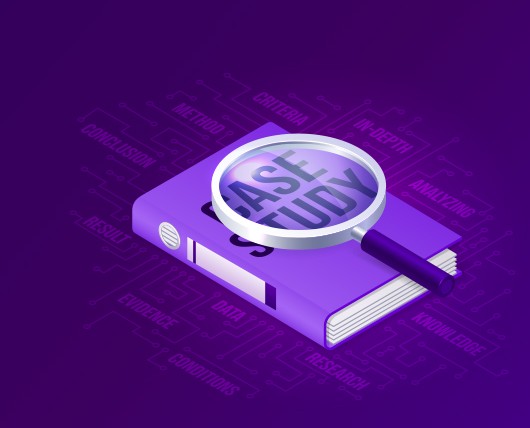Non-fungible tokens (“NFT”s) have taken internet by storm after the sale of a JPEG image in NFT format for 69.4 million USD on March 11, 2021. Following this sale, the sale of tweets, videos, and other digital content in NFT format for tremendous amounts became a common news title. As a rather new concept, the use of NFTs is ever expanding, whilst the legal qualification of NFTs in these transactions are vastly argued in the legal doctrine.
1. The current and potential use of the NFT’s
As they are unique and unalterable, NFTs can well be used for authentication and certification of the ownership of a digital asset. It is possible for a digital asset to be attached to an NFT and this feature enables a verification of the digital asset, thus, any transaction related to it.
When a digital asset is issued in the NFT format (current terminology is minted), it is manipulation safe and naturally becomes unique and its source can be verified and traced through the technology of blockchain. Accordingly, it can also be subject to a transaction through the blockchain infrastructure, and, can be used as a trade item in practice.
This feature, for example, allows a digital artist to offer his/her artwork through NFTs. Through smart contracts, NFTs also provide opportunities to artists to claim royalty payments for resale of their work.
NFTs are not providing an opportunity for artists but also to brands and business, in this digital era in which virtual reality started to replace the reality. Recently, a Chinese sneaker brand has offer virtual sneakers that can be worn in computer games through NFTs, which expanded the idea of use of NFTs in future for brands. This was followed by sale of a digital sneaker created offered by Italian luxury brand Gucci with the same purposes. NBA is offering collectibles such as NBA Top Shot clip through NFTs.
NFTs can also replace physical sale of a ticket and allows the consumer to keep the digital proof, which is satisfying for the collector state of mind as well. The British rock band Kings of Leon has provided a VIP ticket for all their future events in the upcoming 20 years through NFTs.
Accordingly, NFTs ease IP owners capitalize their IPs. NFTs also attract business by providing limitless opportunities and it seems that we will be hearing more and more on use of them in the future.
2. How do NFTs work; the particularities of the underlying technology
The NFT is a single unique, uninterchangeable, and unalterable token minted and traded on a blockchain network. A blockchain is a distributed digital ledger system where records are kept in various ledgers at the same time instead of one single centralized ledger. For the NFTs, ERC 721 and ERC-1155 coin standards are used so far. It is, however, expected that this technology will expand to other cryptocurrency’s infrastructure and others will have their own version of NFTs.
In respect of NFT’s, data is recorded as a group called “blocks” with a cryptographic hash and transaction data with the time stamp in the blockchain. Each new transaction is added to the ledger kept by all the users in the system as a new block and added to the chain after confirmation. After data is recorded, it is resistant to any alterations as alteration is not possible without altering all subsequent blocks, which requires confirmation with cryptographic hash; thus, the possibility of external intervention or cheat is prevented.
When the NFT is issued, its code is published into a token on a blockchain with Ethereum standard. Thus, the ownership can be verified and can be transferred to third persons using blockchain. Cryptocurrencies, as the first area of the use of blockchain technology, are somewhat “fungible”, in other words, they are interchangeable as they are meant to be used as a medium of exchange. When or by whom a crypto coin is mined is irrelevant for the value of the coin, and each same kind of coin can be used for exchange representing the same value because they are identical to each other. Unlike cryptocurrencies, each NFT represents a different value. In this respect, they are unique and cannot be used interchangeably, therefore “non-fungible”. The NFTs also cannot be divided.
The digital asset that is subject to an NFT is not directly embedded in the NFT. The digital asset is kept in another platform. Therefore, NFT is currently only a key to access to the digital asset, which is kept in other platform such as OverSea and Makersplace which are currently among the most popular NFT marketplaces. If the hosting platform is out of business the digital art would disappear with it.
Although NFTs are unique and cannot be copied, NFT is not a technical solution to prevent copying of the digital asset sold with it, NFT is only a verification on the purchased digital asset.
Any asset offered through NFTs do not necessarily cover any copyrighted material. NFTs can be used to represent virtually any type of real or intangible item. During this brief term, NFTs have been subject to sale of digital artworks, tweets, collectibles, tokenized real-word assets, virtual items regarding video games, videos of iconic sports events, music albums, concert tickets, gifs, memes worldwide.
Owning an NFT representing a digital artwork does not grant any copyright to the owner of the NFT. In other words, the owner of an NFT is not the owner of the underlying rights related to the work. The owner of the NFT cannot copy, distribute, or alter the artwork. Copyright on the work lies with its author. Yet, it is possible to regulate the rights arising from the artwork through smart contracts.
It is always possible to create a “fake” NFT as well, which means filling misleading information on the blockchain regarding the source of the digital asset and copying the digital asset in the absence of the rightful owner of the digital asset.
3. Legal implications of NFTs under the Turkish Law
As a rather new concept, the legal framework of the NFT is generally unresolved and vastly argued. The NFTs are not specifically regulated under Turkish law; albeit the general principles of Turkish law, e.g., the Turkish Civil Code, the Turkish Code of Obligations, and the Turkish Copyright Law, draw the lines for formation of related contracts, the legal title, transfer, and use of NFTs.
3.1. LEGAL QUALIFICATION OF NFTS AND THEIR EVALUATION TOWARDS THE CRYPTOCURRENCY REGULATIONS
The NFTs’ legal classification in Turkish law is problematic as crypto asset’s legal status is controversial due to the lack of specific regulation. Although there is a tendency towards the qualification of crypto assets as property, this opinion is criticized due to lack of any physical existence. It is problematic when digital assets such as artworks, videos, games, or tweets are “sold” in NFT format. It is controversial whether they can be regarded as property under the Turkish Civil Code, thus, can be made subject to any legal title which would eventually lead to the possibility of transfer of such title.
Right to property is generally accepted to include any items that have an economic value as can be understood from the preamble of Article 35 of the Constitution. However, how its definition as “property” under the Turkish Civil Code will be applied to NFTis controversial. As and when NFTs have an economic value, they can be subject to the right to property which provides the right to use, benefit and dispose of. In this respect, NFTs can be subject to legal transactions based on the right to property, such as sale or lease.
When it comes to the smart contracts that relates to the transactions on NFTs, it would be critical to evaluate the form and other requirements of contracts under Turkish and whether smart contracts are validly established. Form of any contract can be freely determined by its parties unless explicitly prescribed as per the provision of law. Smart contracts can be regarded as valid contracts under Turkish Code of Obligations so long as they carry out the essential elements of a contract, which is mutual and aligned expression of will and any specific written form requirement is not sought for the respective transaction in each specific case. For the fulfillment of the written form, the contract must be signed by hand or through a secured e-signature. Therefore, smart contracts cannot be used as valid contracts fulfilling written form requirements. Furthermore, any claims asserted before the civil courts exceeding a certain value (TRY 4.880,00 for 2021), must be proved by deed. Therefore, even if written form requirement is not sought for a transaction to be validly established, the evidential power of any smart contract -or as may be considered by the court “data on electronic environments”- should be considered carefully towards any evidential requirements and rules of Turkish law in each specific case.
Just as the cryptocurrencies, the NFTs are not specifically regulated under Turkish law. However, there are certain restrictions on the use of crypto assets in various regulated sectors. For instance, payment and electronic money institutions are forbidden to provide services directly or indirectly for the use of crypto assets as a means of payment, to develop business models, or provide services regarding those business models where crypto assets are used in the provision of payments services and issuance of electronic money. Similarly, capital markets intermediary institutions are not allowed to conduct any derivative or spot transaction based on crypto assets. In this regard, the use of the NFT in capital markets and payment services is not possible in Turkey.
Furthermore, as per the 2 of Law No. 5549 on Prevention of Laundering Proceeds of Crime, artwork merchants and intermediaries including auctioneers are defined as an obliged party, and they are obliged to make certain notifications. It is yet to be clear whether the sale of NFT format artworks and videos, etc. would be regarded as artwork trading by the Financial Crimes Investigation Board, as the tremendous sales values for an intangible asset, a content made it very possible for the use for money laundering activities.
3.2 IP RIGHTS ASPECT
As briefly mentioned, the above transfer or sale of a digital copyrighted work through NFT is possible. But it must be noted that it does not necessarily mean that the owner of the NFT is the owner of the rights arising from the digital asset that NFT is offered. The owner of the NFT does not necessarily need to be the owner of the digital asset offered through as well.
A digital asset may include a copyright and/or other IP rights such as trademark or industrial design. Creating an NFT may infringe the rights of the owner of the work offered through NFT. Accordingly, before minting and offering the digital artwork through NFT on a platform IP clearance is up most important.
Anyone can mint a digital asset offer it through NFT, yet the digital asset could be breaching other party’s rights. For example, a design that is created and offered through NFT may include a registered mark, which could be infringing a third-party trademark right under Turkish Industrial Property Law numbered 6769.
For artistic works including music products, although it is easy to determine author of a work, which is created by one individual, the situation differs for collective works. Even an NFT offered one of the authors of the artwork, could be breaching other co-authors’ rights of the work. Under the Turkish Copyright Law numbered 5846, author of the work owns all copyrights arising from the artistic work.
It would not be wrong to prognosticate that NFTs will be subject to copyright infringement or other IP rights infringement claims, as anyone can create NFTs.
NFTs typically do not include transfer of IP rights, accordingly, any use of digital asset, other than personal use, such as copying, distributing, creating derivative works (as well as new NFTs) or communicating the work to the public may breach the rightful owner’s rights arising from the digital asset.
The relation between the owner of the work and the NFT can be limitedly regulated through a smart contract. It must be noted that the Turkish Copyright Law set forth very strict formal rules on transfer or licensing of IP rights. Any copyright transaction arising from the work should be in written and the rights subject to transfer or license should be specifically mentioned in the agreement with the duration and place as well according to the Turkish Copyright Law.
Nevertheless, NFTs seem like an effective and promising tool for the author of a work of fine art for asking a share on resale of his/her work that is granted in Article 45 of the Turkish Copyright Law numbered 5846, through smart contracts. But it must be noted that the smart contracts can be easily breached if the work of fine art is carried to another platform.
Platforms liability on the infringement of IP rights is an important topic to discuss in the upcoming days as well.
4. Conclusive Remarks
Like all technological breakthroughs, NFTs have issues that needed to be addressed, but they carry a great promise for the future. Although the technology is not there yet, it appears that NFTs will provide a secured ground for future on distribution and protection of IP rights.
Its potential use in sports, fashion, real estate, gaming, art, and industries such as automotive can open a new window in the trade of digital assets. Since cryptocurrencies have yet to heavily regulated under Turkish law, it is not expected to see any regulation focusing on NFTs in the short run. However, it would not be wrong to articulate that any regulation on cryptocurrencies would also wash up the gray areas in respect of NFTs. Therefore, any future regulations on cryptocurrencies, let alone NFTs on will be decisive on the development of NFT related practices and applications in Turkey.
Author: Moroğlu Arseven – Atty. Burcu Tuzcu Ersin, Atty. Ezgi Baklacı Gülkokar, Atty. Ece Berkman ve Atty. Ceylan Necipoğlu








Çalışanların Sır Saklama Yükümlülüğü ve Gizlilik Sözleşmeleri
ISO 37301 Uyum Yönetim Sistemi (Compliance Management Systems) Standardı Neden Önemlidir?
Ahilik ve Etik Kodun Tarihsel İzleri
Morality vs Ethics: the problem with trolleys
ISO 37301 Uyum Yönetim Sistemi (Compliance Management Systems) Standardı Neden Önemlidir?
Legality of Pay or Consent Models
Kurumsal Diplomasinin 6 Unsuru
Policy Solutions: Women’s Economic Empowerment Also Fights Corruption